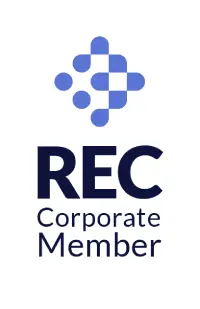Through the initiative known as Saudi Vision 2030, KSA is undergoing a profound national transformation. In addition to modernizing and professionalizing government institutions and reviving private investment, the objectives include lowering economic reliance on the oil industry. This translates into a systemic shift in the health sector that emphasizes value-based healthcare and involves increasing healthcare system expansion, corporatization, and enhanced efficiency.
Adding five million by 2025, the population of KSA is predicted to grow from its present 34.8 million to 54.7 million by 2050. An increase in the aging population, as well as growing aspirations for better healthcare for all people, have led to increased demands on the Saudi healthcare system, which the reforms have met.
With the continuous changes, Saudi nursing has the chance to become a regional leader and global role model for a fulfilling career path that offers effective, high-quality healthcare to all Saudi nationals. This case presentation is an analysis of the future and current challenges that the nursing profession in KSA is facing. The analysis is followed by a proposal for policies that will help in meeting those challenges.
In this report, the state of Saudi nursing from the perspectives of the Saudi health system and global health system trends is examined. The conclusions and recommendations are based on the personal experiences as presidents of the Saudi Nursing Professional Council, Saudi Nursing Scientific Council, Saudi Nurses Association, Dean of a College of Nursing, Secretary General of the SHC, General Director for Health Economics and Policy of the SHC, and a 12-month process of consultation with prominent figures in the Saudi nursing profession and the healthcare system. Now, let us dive into what are the challenges.
Current Challenges
In this blog, we have categorized the current challenges in Saudi Arabia’s healthcare field into four different main themes. Let us see what they are and how KSA can positively meet those challenges.
The Accessibility of Nurses
While there are high rates of premature exits from the labor market, the suboptimal flow of nurses into the labor market accounts for most of the shortage of Saudi nurses. The literature indicates that insufficient training slots for aspiring nurses are a major cause of the suboptimal generation of new nurses. In comparison to other OECD countries, KSA trains relatively fewer nurses.
When it comes to home training, a significant percentage of participants drop out of school. A smaller percentage applies to bachelor’s nursing degrees. The dropout rate for students enrolled in diploma programs is estimated to be between 27 and 32%. Moreover, anecdotal data indicates that certain students fail to find employment after completing their training since their main motivation is to learn instead of becoming a nurse. After receiving their training, a lot of newly licensed nurses do not receive enough assistance to join or stay in the workforce.
In 2018, there were 80% more women than men working as nurses in the Kingdom of Saudi Arabia (KSA). However, as Figure 3 illustrates, as part of the Saudi native minority, there are significantly more male nurses—roughly 40%—than international nurses—less than 10%.
Encouragement of more males to enter the field has been advocated as a way to increase gender parity and increase the number of skilled applicants available for hiring. A reduction in the workforce or an increase in foreign hiring will be necessary if the nurses are not retrained through bridging programs, which would undoubtedly result in a shortage of Saudi nurses.
We are here to help you to become a registered nurse. To know more, read this – Our MD, Mr. Varun Khosla, speaks about how we help nurses and doctors relocate internationally.
Performance
The knowledge and abilities needed to provide high-quality care are frequently absent from Saudi nurses. As they progress through training, graduation, and job practice, nurses in the Kingdom should continue to improve their skills and competence. Programs for competency-based education that are uniform throughout Saudi Arabian universities could help achieve this.
By shortening the duration of clinical licenses from five years to two, the Saudi Commission for Health Specialties (SCFHS) is working to enhance the quality of care. As a result, skills will be upgraded, and the SCFHS will be able to mandate ongoing professional development more frequently.
Recent years have seen an increase in the number of specialized nurses. A nurse may be able to advance in their profession by specializing, which is sometimes cited as an excuse for pay increases. Less than 5% of Saudi nurses are thought to be advanced practice nurses, and their numbers are still quite small.
In highly technical settings, including oncology units, intensive care units, and operating theaters, foreign nurses occupy the majority of advanced nurse and specialty care nursing roles. Increased effort at work is often motivated by opportunities for career progress. In the Saudi Arabian nursing profession, many people believe that there are few prospects.
The Dispersion of Nurses
Institutionally and geographically, the nursing labor market in Saudi Arabia is dispersed. The current delivery of public healthcare is through distinct systems managed by multiple ministries and governmental agencies, which compete with the thriving private sector for personnel, despite the fact that proposed reforms seek to avoid fragmentation.
It is uncommon for a nurse to move jobs because of the many industries and employers, which combine to form a collection of nearly entirely distinct labor markets. MOH facilities employ a higher percentage of Saudi nurses (89% of all Saudi men employed in the nursing field). Nurses from other countries work primarily in business and other public sectors.
Many policies are currently changing, and each sector is at a distinct stage of transformation. Though it might be strengthened further to become more needs-based, MOH hiring practices are still largely bureaucratic and centralized. The Ministry of Human Resources and Social Development (MOH) is in charge of deployment, while the Ministry of Civil Service or Ministry of Labour (now combined) handles recruitment. Nurses with the best abilities, including many registered nurses, tend to get monopolized through very selective recruitment in other sectors; this leaves the MOH recruiting most diploma nurses.
Governance and Management
Currently, with the exception of the public sector, neither comprehensive nor cross-sectoral planning nor a national human resources for health (HRH) plan includes the nursing profession. Planning and management are handled independently by each component of the health system. Nursing schools do not fulfill the demands of the health sector since there is also a minimal official connection between the education and health sectors. Nursing laws and policies have been called for revision. Implementing Advanced Practice Nurses in Saudi Arabia has been delayed in large part due to insufficient legislation.
What are the Potential Solutions for These Current Challenges?
Aiming to nationalize the workforce, standardize and raise the caliber of nursing practice, and incentivize Saudi nurses to be hired and trained by public and private hospitals, the Saudi government and leaders in the healthcare industry are tackling the challenges above by quickly increasing the production of contemporary, high-quality nursing education.
A decrease in the number of nurses leaving the labor market (lower attrition) and an increase in the number of nurses entering the workforce (capacity expansion) will make more nurses available. In addition to addressing the problem of subpar performance, ongoing skill improvement should aid with retention. It will be possible to deploy nurses where they are most required and maintain an equitable workforce distribution throughout the Kingdom if recruitment practices are flexible.
The profession in KSA will also be able to satisfy the needs of the country both now and in the future if there is a strong governance framework in place that prioritizes patient safety and quality of care. Here, we have categorized the solutions for these challenges into seven different main themes. Let us dive right into these for better understanding.
Click here to contact Dynamic Health Staff today!
Fitting Abilities to Needs
Gaining a better understanding of needs is the foundation for any policy recommendations. The country as a whole has a known shortage of nurses, but understanding the specific skills required and how those needs will change due to ongoing health sector reforms and evolving health needs is challenging due to the fragmented nature of the Saudi health sector and record-keeping.
A national health workforce plan or strategize that spans all sectors should be developed in conjunction with this requirements assessment, as it is a crucial requirement for KSA. In order to develop and put into action a process that will lead to agreement on the future vision and goals for the health workforce, the SHC, and the SCFHS should collaborate with the leadership of several professional categories, including nursing.
Expanding the Capacity
Expanding nursing education options in Saudi Arabia is obviously necessary. Many strategies can be used to do this, such as launching new schools, growing the size of the classes at already-existing nursing schools, and creating satellite campuses. There is potential for additional private training providers as well. Currently, 13 of the 39 nursing schools are private. By persuading prominent nursing schools from developed nations to create branch campuses in Saudi Arabia, capacity shortages can be addressed, and the teaching and learning process can be improved.
Development of Skills and Competence
More exposure to patients and medical simulation, competency-based training, enhanced pedagogy, and better teaching resources are some of the ways that the capacity of nursing schools will need to be matched with an increase in the quality of nursing education.
In order to detect underachievers and provide them with an opportunity to receive new training before beginning to practice nursing, the nursing licensing examination was recently instituted. Ensuring that tests accurately represent the reality of nursing practice and enhance the profession’s performance is crucial, but it shouldn’t unduly exclude graduates who possess the necessary skills but struggle with exams.
Standards for knowledge, competencies, training duration, faculty qualifications, and clinical site needs must be established before advanced nursing programs can be established.
Improvement in Retention
Sustaining job satisfaction and retention in the nursing workforce in Saudi Arabia will depend on maintaining and increasing skill levels as well as providing opportunities for career advancement.
A large number of men and women find nursing to be an unappealing career choice because of shift work. Reducing the burden that shifts workplaces on hospital nurses is one of the most critical elements of any upcoming strategy. Numerous strategies, such as splitting up shifts from two 12-hour shifts to three 8-hour or four 6-hour shifts, might be used to accomplish this. Additionally, to lessen the stress of finding babysitters during off-peak shifts, hospitals might offer daycare around the clock.
Care teams can be expanded with employees who possess additional qualifications, allowing nurses to practice at the highest level of their license and reducing the emotional and physical burden of nursing, particularly in hospital settings. Further ways to help nurses operate more productively include procedural simplification or the introduction of useful tools like mobile computers.
With more than 45 years of expertise, we have deployed many healthcare professionals to KSA; you can check out here: Success Stories of Healthcare Professionals deployed by DHS.
Enhance the Image of Nursing in the Kingdom of Saudi Arabia
Saudi nurses need to be positioned as high-tech, science-based professionals because they are still too often seen as employees of the hired help. In the current system, the Saudi Professional Nursing Council and the Saudi Scientific Nursing Council, which are part of the SCFHS and answer to a doctor, are the primary organizations that represent nurses nationally.
An association for nurses was just founded in KSA. However, additional funding is needed. If the Nursing Association were adequately funded, it could engage in worthwhile projects such as advancing ethical standards, enhancing the profession’s reputation, advocating for nurses, providing educational opportunities, mentoring programs, assisting in the creation of nursing career pathways, and igniting passion and ideas for nursing in Saudi Arabia.
Boost Nurse Staff Dispersal
Government incentives for delivering care at rural health institutions can be extended and strengthened in the near future. Providing incentives like housing subsidies, easing security concerns, and facilitating access to education and professional advancement can all contribute to drawing more nurses to remote areas. For home-based care and the management of chronic illnesses like diabetes, telenursing can be very helpful in delivering nursing care in isolated areas.
The forthcoming corporatization of the MOH health system will solve some of the labor market rigidities that provide challenges for nurses seeking new employment opportunities in Saudi Arabia. Due to the ability of each of the five MOH corporations to plan and hire staff independently, the MOH will now be competitive with other industries.
Observe and Comply with Regulations
It will be crucial to avoid overregulating even if rules must be created and upheld in order to support appropriate quality in the nursing profession. In the field of HRH as a whole, it is evident that certain regulatory bodies act as “guilds” that preserve and promote the profession rather than enhancing patient access to healthcare and the system’s overall productivity. Until it can be demonstrated that there will be a positive impact on patients and the health system, the concerned departments propose that no significant changes to HRH regulations should be implemented.
Medical malpractice reform may be required in the Kingdom of Saudi Arabia due to the growing clinicians’ autonomy. It may be necessary to change the policy on nursing malpractice insurance and legal liability as a result.
Wrapping Up
The nursing profession in Saudi Arabia has numerous obstacles, some of which are unique to the nation and some of which are global issues with health systems. The low percentage of educated nurses, heavy reliance on foreign labor, and the impending departure of a significant number of diploma nurses capable of direct patient care make the nursing workforce situation in the Kingdom of Saudi Arabia unstable.
Creating a contemporary, self-sufficient workforce is the goal of the recommendations put forward here for the nursing profession in Saudi Arabia. Collaborating with partners in the healthcare system, especially the private sector, is essential for the MOH to implement these recommended improvements.
The reporters, who include individuals with knowledge and policy clout in the KSA’s nursing and health systems, thoroughly examined the existing state of affairs before producing this case study.
In summary, tackling nursing issues in Saudi Arabia necessitates a multifaceted strategy involving cooperation between the government, medical facilities, and employment firms. It is crucial to establish policies that prioritize the welfare of nurses and ensure fair compensation, opportunities for career advancement, and a safe working environment.
We at Dynamic Health Staff play an important role in this process by providing skilled nurses from around the world and ensuring that they are placed in healthcare facilities that align with their qualifications and preferences. By partnering to achieve these objectives, we may raise the standard of patient care by strengthening the Saudi Arabian nursing workforce.
Do you want to know if you are qualified to be a healthcare professional in Saudi Arabia and how the interviews take place? Click here to learn more!






